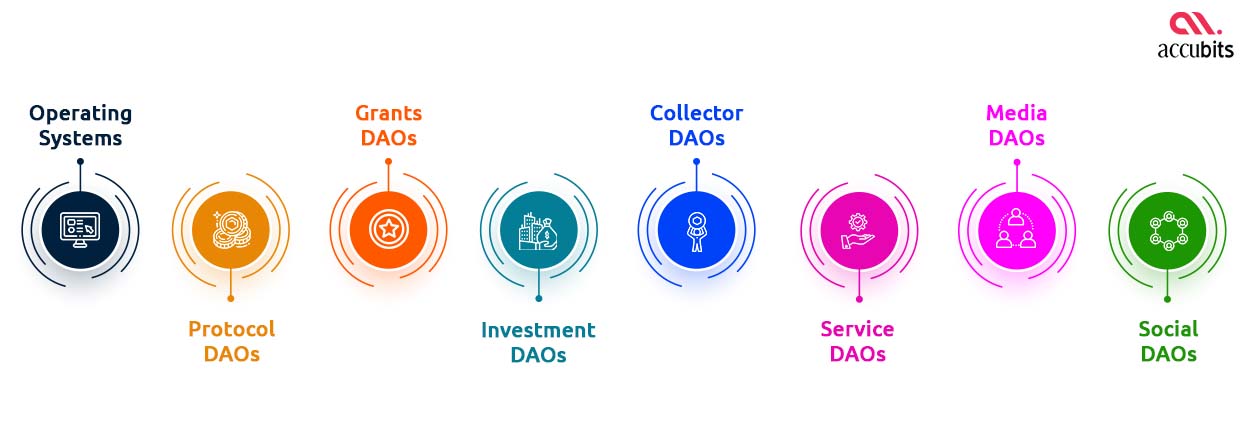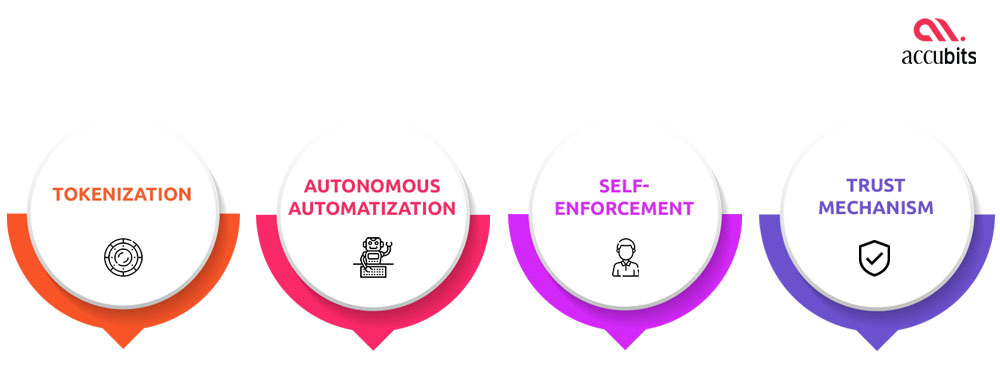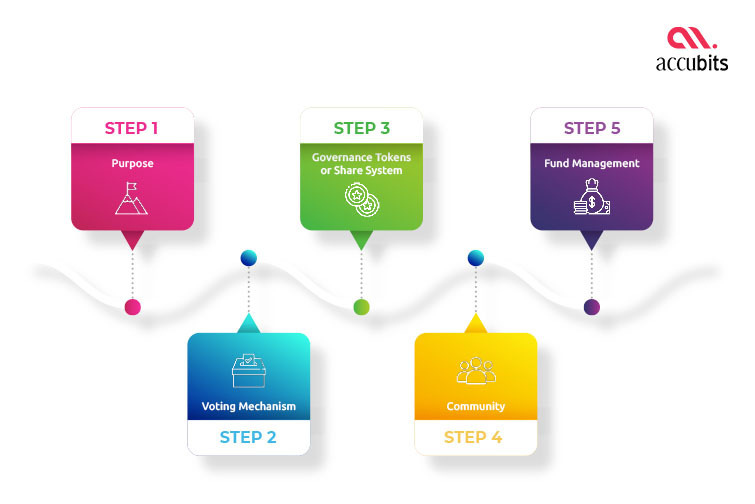

As DeFi and NFT communities grow enormously, how to govern decentralized protocols takes on added importance. Over the next few years, one of these communities’ most immediate challenges is to figure out governance — managing collective decision-making to optimize funds and operations. At this point, DAO governance models will help sustain a novel governance model that can aid decentralization.
In this article, we will help you gain better insight into what DAOs are, how DAO governance works, and how it can facilitate better governance models in decentralized finance:
A Decentralised Autonomous Organization (DAO) is a community-led organization with no central authority and is governed by computer codes. A DAO is a completely autonomous and transparent organization where smart contracts lay the foundation rules and execute the agreed-upon decision. The blockchain transparently records all the rules and transactions on a DAO.
DAO members control the entire DAO governance. These members work together to make critical decisions on the future of a project.
Related Article: What to know before implementing blockchain in your business?
Depending on its structure, technology, and modus operandi, a DAO can fall into one of the following categories:

Related article: What are the different types of DAOs?
The core team of community members uses smart contracts to establish the rules of a DAO on a blockchain. These rules are publicly visible, verifiable, and auditable. DAO works to receive funds and bestow governance based on predefined blockchain rules.
For this, the DAO issues and sells tokens to raise funds that fill the DAO treasury. DAO offers voting rights to token buyers. On completing the funding, the DAO becomes ready for deployment.
Once the code is pushed into production, it can no longer be changed by any means other than a consensus reached through member voting. No special authority can modify the rules of the DAO; it is entirely up to the community of token holders to decide.
Talk to our experts to know more about DAOs.
Starting an organization with someone that involves funding and money requires a lot of trust in the people you’re working with. But it’s hard to trust someone you’ve only ever interacted with on the internet.
With DAOs, you don’t need to trust anyone else in the group, just the DAO’s code, which is 100% transparent and verifiable by anyone. The use of DAOs opens up many new global collaboration and coordination opportunities.
DAOs can be implemented for anything and everything, such as charity, album release, business, non-profit organizations, painting, etc.
Decentralized Finance or DeFi refers to P2P finance enabled by Layer-1 blockchain protocols such as Ethereum, Avalanche, Cardano, etc. DeFi apps significantly increase the speed and reduce the cost of financial transactions by eliminating the need for trusted intermediaries.
DeFi relies heavily on DAO governance models for its smooth operation. DAOs manage DeFi apps through individual decisions made by decentralized validator nodes who own or possess sufficient tokens to approve blocks.

The different ways in which DAO governance facilitates better governance models in DeFi applications are:
DeFi offers plenty of other benefits for DAO apps as well.
Read more: What is DeFi 2.0, and why does it matter?

A successful DAO requires the following:
Creating a DAO requires a mechanism for handling votes and proposals. There is a pool of open-source solutions that everyone can use.
Snapshot is a common example that works on multiple blockchains. Snapshot is a customizable off-chain voting mechanism that uses digital signatures to cast votes based on a snapshot of token owners. To create your voting system on Snapshot, you’ll need to:
Moreover, this results in an ecosystem of decentralized organizations that access a wide range of financial services while removing most entry barriers and promoting financial inclusion.
Read more: How to launch a DeFi project (DeFi tokens, DeFi coins)?
DeFi is in its growing phase and requires a governance model similar to DAO governance to facilitate its framework and workflow better. In addition, DAOs are a break from the centralized past and present of business organizations. Also, DAOs envision a collective organization owned and managed by its members where all of them have a voice. While they are not ubiquitous, DAOs seem to be picking up steam with many businesses.
Talk to our experts to build your own DAO.